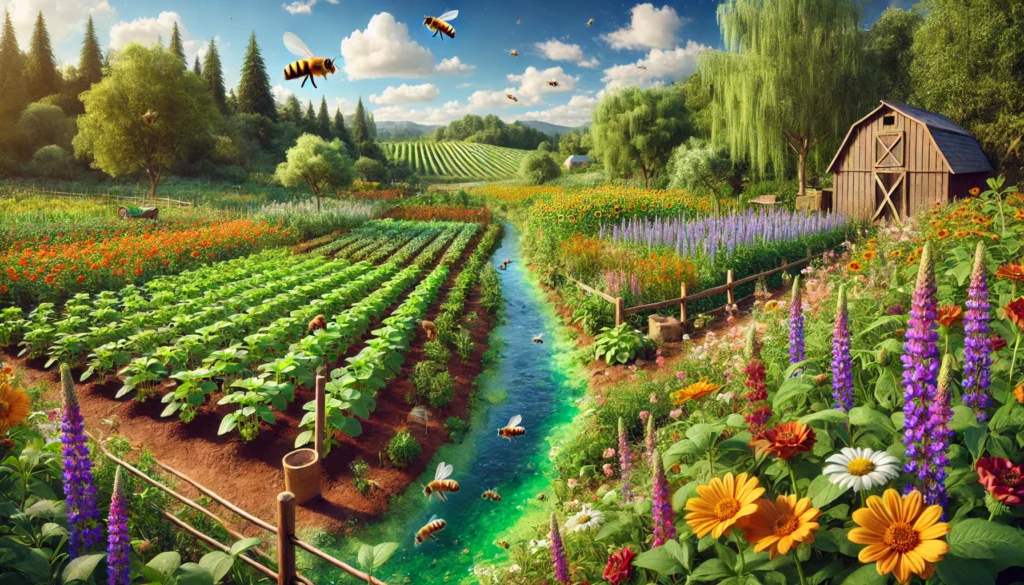In recent years, organic farming and products have gained traction as environmentally friendly choices. But what makes organic so good for the planet? Beyond being a healthier option for us, organic practices significantly benefit ecosystems, soil health, water resources, and biodiversity. In this blog, we’ll explore how going organic creates a more sustainable future for our planet.
What Is Organic Farming?
Organic farming avoids synthetic chemicals like pesticides and fertilizers, focusing instead on natural processes that promote sustainability. It emphasizes:
- Crop rotation to maintain soil fertility.
- The use of compost and manure as natural fertilizers.
- Avoiding genetically modified organisms (GMOs).
- Encouraging biodiversity and ecological balance.
The Environmental Benefits of Organic Farming
1. Healthier Soil, Healthier Planet
Organic farming nurtures soil health by avoiding synthetic chemicals and instead using compost, cover crops, and crop rotation. This enhances soil structure, fertility, and its ability to sequester carbon—helping combat climate change.
Did you know? Organic soil stores 3-6 times more carbon than conventional farming soil.
2. Reduces Water Pollution
Traditional farming relies heavily on chemical fertilizers and pesticides that can leach into rivers, lakes, and oceans, causing pollution and harming marine life. Organic farming eliminates these chemicals, ensuring cleaner water sources.
3. Promotes Biodiversity
Organic farms act as sanctuaries for wildlife. By avoiding harmful pesticides, they provide a safe haven for bees, butterflies, birds, and other essential species that play crucial roles in our ecosystems. Biodiversity ensures resilience to pests and climate change, creating a balanced environment.
4. Conserves Energy
Organic farming practices consume less energy compared to conventional farming, as they avoid energy-intensive synthetic chemicals. This reduction in fossil fuel use lowers the carbon footprint of food production.
Why Organic Products Matter
1. Encourages Ethical Farming Practices
Organic farming often includes humane treatment of animals, ensuring livestock is free to roam and eat a natural diet.
2. Supports Local and Sustainable Economies
By purchasing organic, you’re supporting farmers who prioritize sustainability and ethical practices. Many organic farms are local, reducing the environmental impact of transportation.

